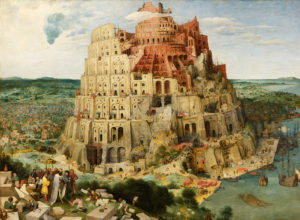One striking development in Renaissance studies over the last five years has been the surge of interest in the theory and practice of translation. This has been evident not just in the number of conferences and books on the subject, including the publication of volume 2 (1550-1660) in the admirable Oxford History of Literary Translation in English (2010), but also in the appearance of various new resources for the study of translation in the early modern period. These include Warwick’s Renaissance Cultural Crossroads database, which enables searches across English translation by source, target and intermediary languages, as well as by author and translator; the MHRA Tudor and Stuart Translations series, which is delivering affordable scholarly editions of English Renaissance translations in print and google e-book format; and the much needed USTC, directed from St Andrews, which covers the entire field of European book production to 1600.


All this has coincided with the most prolonged economic and financial crisis in living memory, with the troubles of the Eurozone provoking even more nationalist and isolationist rhetoric than usual from the British right. Yet one result of this current scholarly work will surely be to make English Renaissance studies much less Anglocentric. It places Britain very firmly in Europe in the sixteenth century, and the USTC in particular provides a radical change of perspective for scholars whose understanding of the literature and book production of the period has been shaped by years of familiarity by the STC. In the process of transmission of both classical and modern authors, whether in the original language or in translation, the USTC shows time and again that London was pretty much the end of the line.
SRS members, of course, will not need reminding of this. But English studies more generally still remains quite insular, and it is one of the aims of the MHRA series, which I co-edit with Andrew Hadfield, to re-establish work in translation as part of the canon of English Renaissance literature. So far we have published translations of the Aeneid (into Scots-English), the Metamorphoses, Seneca’s tragedies, and La Celestina, as well as a translation from Welsh into English (Llwyd’s Breviary of Britain). A further fifteen volumes are in progress and more are being commissioned. My own contribution has been to edit a volume called English Renaissance Translation Theory. This is designed to act as a companion to the series and aims to establish a corpus of English thinking about the principles and practice of translation in the period from Caxton to the reign of James VI and I.
Here too there is a contemporary political dimension, though one that is more specific to the academic community. It is noticeable how much of the discussion by early modern translators about the value and function of their work echoes the terms used in the modern agenda for academic research – ‘impact’, ‘knowledge transfer’ and ‘public engagement’. Thomas Hoby was pretty clear about the cultural benefits of translation: ‘where the Sciences are most turned into the vulgar tongue, there are best learned men, and comparing it with the contrary, they shall also find the effects contrary’. And William Painter introduced the translations in his hugely popular Palace of Pleasure with a swipe at academics who think it ‘sufficient to have a perfect knowledge to no other end but to profit themselves’, while praising those who have ‘done a common benefit to profit others’ and who take pains that ‘no science lurk in a corner, that no knowledge be shut up in cloisters’. What’s more, sixteenth-century translators were knocking at an open door as far as government was concerned. Under the patronage first of Cromwell and then of Cecil, writers were engaged in the business of translating for the commonwealth, where ‘commonwealth’ may be understood quite literally as ‘common wealth’.
Some of this will feed into the book that I’m now writing, which currently has the title Common: The Development of Literary Culture in Sixteenth-Century England. This will attempt to track the process of ‘making common’ in the sixteenth century as a whole, from Erasmus’s first visit to England in 1499 to the moment of Hamlet a hundred years later. Translation is a key aspect of the business of making common and it will be pivotal to my argument, linking Renaissance to Reformation and helping to explain why the Renaissance in England was so late. Whether this rather ambitious project will come off remains to be seen, but there’s no doubt of the debt that it will owe to the many other scholars who have been opening up this field of enquiry and providing resources – for the common good.
Neil Rhodes
